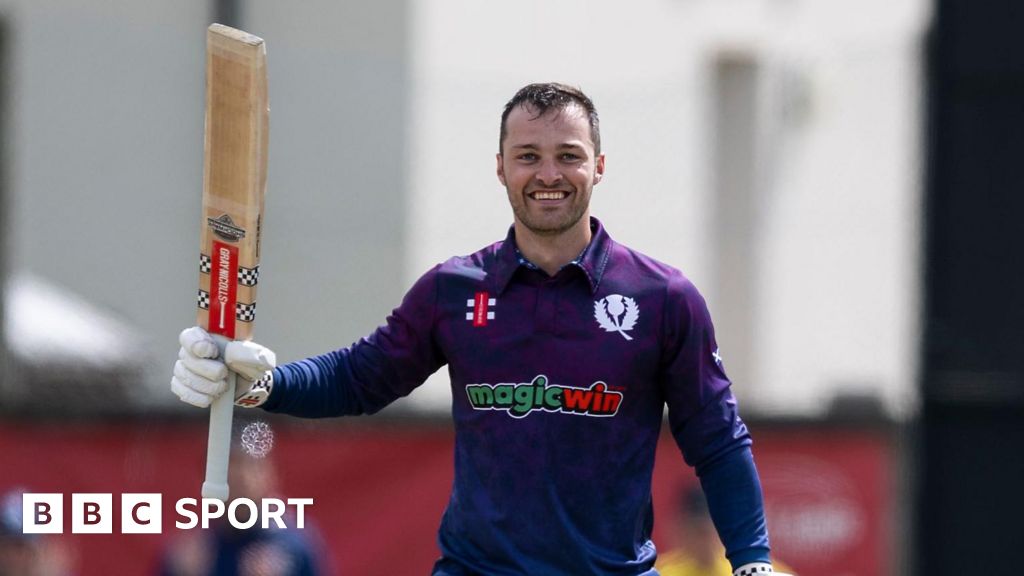Football
Chris Woods: ‘Scotland can create history – everybody’s aware of it’

It was the one save Chris Woods refused to make. To Brian Clough, Woods was not only Peter Shilton’s back-up but a regular squash opponent. One match sticks in Woods’ mind.
“We were playing one morning at Trent Bridge – generally it was a Friday – and there was a guy watching us from behind,” Woods recalls. “All of a sudden there was a clatter. It was Colin Milburn.” The former England cricketer had lost an eye in a car accident. “He says: ‘Sorry Brian. I’ve dropped my glass eye.’ Cloughie turned round to me and said: ‘Pick his eye up and go and give it back.’ It was the only time I ever said ‘no’ to him.”
Clough used to make regular fresh vegetable orders to Woods; the goalkeeper’s father was a farmer.
Woods is one of the underappreciated personalities in British football. There is no other way to assess a career that started as part of that famed Nottingham Forest squad, included great success at Rangers, features multiple major tournaments and has had positive coaching influence on David de Gea. Woods is far too understated – shy, in fact – to take bows in front of supporters. He has little time do so, anyway; now in his 65th year, he will be on the bench in Munich on Friday as Scotland’s goalkeeping coach. When discussing his life in football, it is difficult to know where to start.
His time at Rangers feels as good a point as any. Those were halcyon days at Ibrox. Woods was virtually an ever-present between 1986 and 1991, claiming seven honours in the process. Only a three-month bout of labyrinthitis interrupted his run. Even when Woods returned to the team, he saw a juddering ball as he tried to catch crosses.
“Until you actually get to Glasgow and realise the enormity of the Old Firm teams … you try and explain it but until you are in or around it, you don’t really understand it,” says Woods. “It was mentally taxing because, with all due respect, there wasn’t a lot of work to do during a lot of the games. So on a Saturday you had to make sure if anything did crop up, you could deal with it.
“I went to the 1986 World Cup knowing I was going to Rangers. We seemed to get on a roll. It’s quite similar to Scotland now in that a group of people came in and just gelled. Everybody was happy around each other, which made for a successful environment. When you are in it, you just enjoy coming to work. We were really happy in Scotland.”
The winning of 43 England caps is impressive given Woods again had Shilton ahead of him. “I thought he was the best in the world,” Woods says. “His reactions, dedication to work and general ability made him that way. I just look back and think I couldn’t have had anyone better to learn from.”
Woods played one game in the European Championship of 1988, was the understudy in the World Cups either side of that and featured in all the games as England failed to emerge from their Euro 92 group. Two 0-0 draws preceded a 2-1 loss to Sweden. Woods had been “frustrated” that Shilton was retained for his 125th and final cap in the third-place playoff at Italia 90.
Walter Smith, then the manager at Everton having left Rangers, started Woods’s coaching journey with a call in the summer of 1998. “He spoke about my career but said: ‘Now you are starting from scratch and you have to build your reputation up as a goalkeeping coach,’” Woods recalls. “I took that on board and did what I could. I cannot speak highly enough of Walter.
“I had always said I wouldn’t stay in football once I finished playing. Whether I had it in my head I would follow my dad to the farm … but once you are in football for so long it becomes all you really know.”
Are modern goalkeepers too heavily criticised? “I think they probably get away with more stuff. Balls that are played into the six-yard area; when we played it would be: ‘He is rooted to his line, he won’t come out.’ Now they don’t really mention that. Balls go to three yards out and they’ll let the defender header it.”
after newsletter promotion
Woods developed Tim Howard after he was coaxed from Old Trafford to Goodison Park. Woods went in the opposite direction when David Moyes was hired as Sir Alex Ferguson’s successor in 2013. Little did anybody know how irrelevant a six-year contract for the manager would prove to be.
“I’ve regarded it as a massive honour to work for any club,” Woods says. “But to go into Manchester United, you feel like you’ve really achieved something in your career. To work with De Gea and see how he progressed, because he had a tough time when he first went there; the work he did with Eric Steele, then continued with me, was satisfying. The people who worked in there were really good people.
“You go to Manchester United and think you’ll be there for a number of years. Unfortunately David got the sack. I stayed on until the end of the season, you hear who is coming in and you know they’ll bring their own people. That’s football. It was really disappointing, probably one of my low points in my career after one of the high points.” Moyes kept faith with Woods during his first stint at West Ham. There was also a spell with the US men’s national team.
Woods played alongside Steve Clarke’s scout, Tony Spearing, at Norwich City. That seems the key connection when Scotland needed to replace Stevie Woods in 2021. “It was something that came a little out of the blue,” he says. “I’m thoroughly enjoying it, it’s great to be around people I haven’t worked with before and obviously we have had a pretty successful time of it up until the present.”
Woods sees comparisons between Clarke and Moyes. Both are “diligent, really hard-working, leave no stone unturned”. In Germany, Woods is participating in his sixth major tournament. He believes he has one more in him. First, the appetising prospect of Scotland emerging from a group for the first time. “We know we can create history – everybody is aware of it,” says Woods. Just don’t expect him to seek acclaim if they do.










